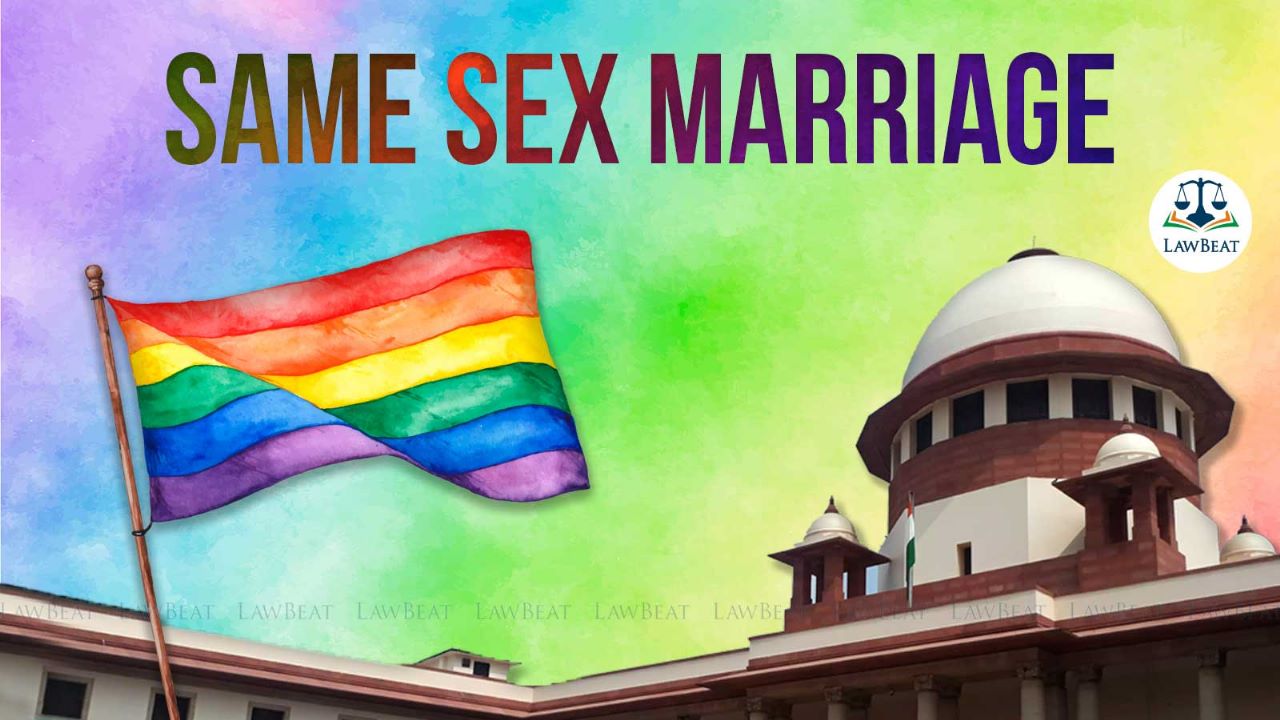Supreme Court: Rajasthan, Assam, Andhra Pradesh oppose recognition of same sex marriage

In the petition, a legal recognition of same-sex marriage under the Special Marriage Act, of 1954 has been sought. The absence of a legal framework that allows members of the LGBTQ+ community to marry any person of their choice had also been raised by the instant plea
On day 9 of the hearing in the plea’s seeking legal recognition of same sex marriage, Solicitor General Tushar Mehta placed before Supreme Court, the response received from seven states on the issue.
The Constitution Bench has been informed that while Manipur, Uttar Pradesh, Maharashtra and Sikkim has sought some time to respond, the states of Rajasthan, Assam and Andhra Pradesh has expressed their opposition to the said petition.
SG Mehta requested the CJI Chandrachud led bench to submit the response from a few states. "Rajasthan says it has read it and is opposed to the same. Others are of the view that the issue needs proper in depth analysis...", the SG told the court.
Heres' a brief overview of what the states have to say:
Rajasthan
Rajasthan Government has stated that if the recognition of same sex marriages was important, the parliament, which has the power to make laws, would have been motivated to frame one for the recognition of the same but as of now, it has not been done. It has been stated that the overall pulse of the people from the state of Rajasthan is against recognition of same sex marriages.
Assam
The Chief Secretary, Assam has responded saying that the matter calls forwide-ranging discussions on various aspects of the institution of marriage as a social phenomenon, and even across cross-sections of societies, the legal understanding of marriage has been that of an agreement/contract between two persons of opposite genders.
"Further, it would be prudent to maintain that Iegislation is the prerogative of legislature, at Centre and in states, and the Courts may like to view the matter in accordance with core principles of our democratic structure. The Legislature reflects the collective wisdom of the nation and its citizens, and it solely possesses the power to enact a law governing human relationships. Marriage, divorce and ancillary subjects so related, fall under entry 5 of Concurrent list of the Constitution and hence it is also in the domain of the state legislature in a manner that it is in the domain of Union Parliament", the reply adds.
Andhra Pradesh
The state has said that after having a discussion with the religious heads of various religions on same sex marriage, it is their view that the state of Andhra Pradesh is against same sex marriage and/or persons belonging to LGBTQIA+ community.
Uttar Pradesh
In its response, State of UP calls the issue of same sex marriage to be a "sensitive subject affecting various sections of the society and different religious denominations". Adding that it has not been served the copy of the petitions, prayers or pleadings, the state has added, " The State Government cannot formulate its comprehensive response without wide consultation with all sections of the society. Hence, it would not be possible for the State Government to provide any comprehensive response in such a short period of time."
Maharashtra
Citing absence of complete material including the pleadings of various parties before the Supreme Court of India, the State of Maharashtra has said that it would not be in a position to come up with a comprehensive response, touching on all the aspects of the matter at such short notice.
Sikkim
Sikkim Government has informed that it is actively considering the matter and is constituting a Committee to conduct an in-depth study and to prepare report to assess the ramifications of same sex marriages on social customs, practices, values, norms, mores, State rules that are prevalent in different sections of society in Sikkim after due consultation with all the stakeholders. Its has said that it shall submits its views once the Committe submits its report.
Manipur
Deputy Secretary (Law), Government of Manipur has informed the Supreme Court thatthe views/ comments of the State Government on the matter would require detailed assessment on the existing social customs, practices, values, rules, etc., that may be prevalent in different sections of the society which is why it seeks more time for proper examination for furnishing the views/ comments on the matter.
Notably, a Constitution bench of the Supreme Court comprising Chief Justice of India DY Chandrachud, Justices Sanjay Kishan Kaul, S Ravindra Bhat, PS Narasimha and Hima Kohli is seized with the same-sex marriage petitions.
In March, the Supreme Court had ordered that the pleas seeking recognition for same-sex marriage be heard by a five-judge Constitution bench on April 18 for final disposal.
The Central Government had filed an affidavit before the Supreme Court opposing the demand for legal recognition of same-sex marriages in India.
Citing the ‘nature of the concept of marriage’, the affidavit stated that the notion of marriage itself necessarily and inevitably presupposes a union between two persons of the “opposite sex”.
On January 6, the Supreme Court had ordered to transfer of all pleas pending before various high courts seeking recognition for same-sex marriage to itself.
In November last year, the Supreme Court had issued a notice in the plea moved by a gay couple seeking legal recognition of same-sex marriage under the Special Marriage Act, of 1954.
Senior Advocate Mukul Rohatgi appearing on behalf of the petitioner-couple had then submitted before a bench comprising CJI Chandrachud and Justice Hima Kohli that the issue was a sequel to Navtej Singh Johar's judgment.
Case Title: Supriyo@ Supriya Chakraborthy v. Union of India & Anr. (a batch of petitions)
